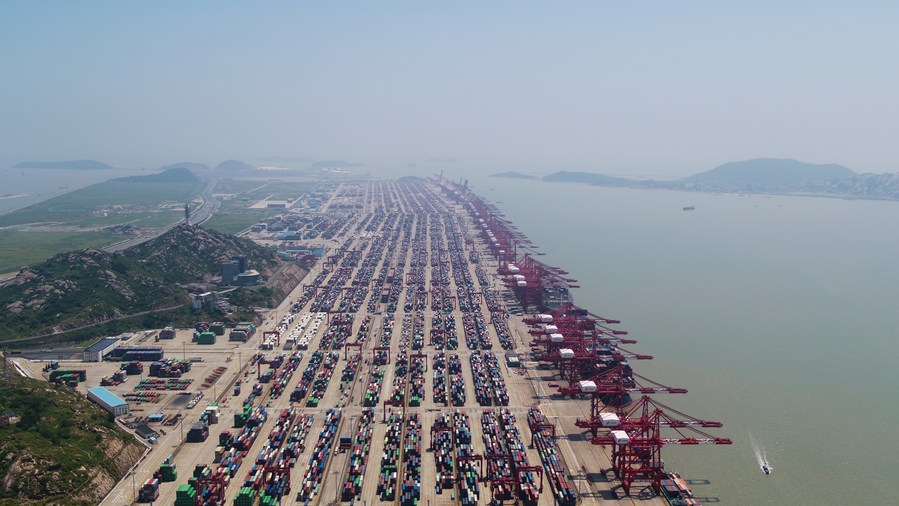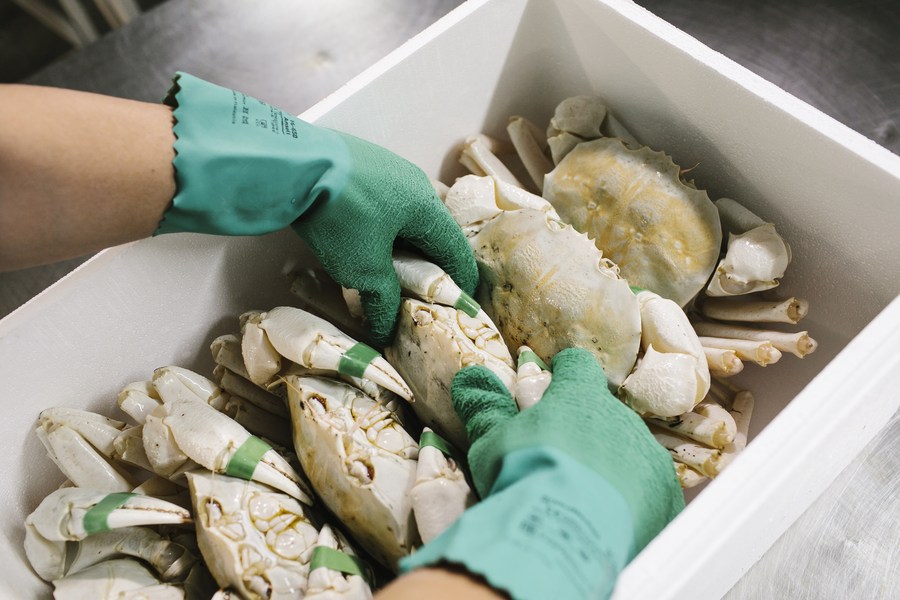
A specially painted plane of Qantas makes a 100-minute celebration flight over the Sydney Opera House in Sydney, Australia, Nov. 16, 2020, to mark the centennial of the airline. (Xinhua/Bai Xuefei)
It is time for Australia to uphold the principle of mutual respect and equality when dealing with relations with China, do more to promote mutual trust and bilateral practical cooperation, and stop going further down the wrong path.
BEIJING, Nov. 18 (Xinhua) -- The cold-war mentality and ideological prejudice are poisoning relations between China and Australia.
Some anti-China politicians and media in Australia, who are seeking their self-interests, have spared no effort to smear China and incite China-phobia sentiment, with their most recent invention being claims that China's control measures on imports are "an exercise of economic coercion."
For these China-bashers, it is imperative to reflect on their words and deeds that have caused setback in the bilateral ties, and start making amends with constructive efforts.
Currently, many parts of the world are seeing a rebound of the coronavirus disease. In response, China has taken prudent control measures on some foreign imports, which is in line with China's laws and regulations as well as international customary practice and agreement between China and Australia.
Those safety procedures are reasonable, legal and beyond reproach, rather than the so-called "discriminatory" or "retaliatory" trade measures claimed by some Australian politicians.

Aerial photo taken on Aug. 17, 2020 shows the container dock of Yangshan Port in Shanghai, east China. (Xinhua/Ding Ting)
The fact is China has been opening up its market and improving its business environment in recent years, which has created enormous opportunities for enterprises across the globe, including those from Australia.
From 2015 to 2020, China has lowered tariffs for products from Australia for six consecutive years. At present, around 95 percent of Australian products to China enjoy zero tariffs.
In the just-concluded China International Import Expo in Shanghai, over 150 Australian companies have participated in the trade fair. As Australian local media reported, at least 2,000 Australian businesses sold over 720 million U.S. dollars worth of goods to Chinese customers in just 24 hours on Nov. 11, an online shopping extravaganza in China.
In sharp contrast, the Australian government is actually the trouble-maker in economic and trade exchanges between the two sides. It has been politicizing trade and investment issues, and constantly violating market principles by discriminating against Chinese companies.
Since 2018, more than 10 investment programs from China have been rejected by Australia on the pretext of "national security concerns," which directly led to huge losses of the Chinese enterprises. Also, Australia has banned Chinese companies from 5G network construction citing unfounded national security threat.

Crystal crabs, a seafood delicacy only produced in deep-sea off the Western Australia (WA) coast, are being boxed up at Oceanic Trading company in Western Australia, Australia, on June 30, 2020. Crystal crab is going to be introduced to more gourmets at this year's China International Import Expo (CIIE) in Shanghai. (Photo by Annelize Barron/Xinhua)
Moreover, the Australian government completely deviated from its promises in a free trade deal between the two countries. So far, it has provoked 106 anti-dumping and anti-subsidy investigations against Chinese products, while China has merely conducted four cases on goods from Australia.
Facts are crystal clear. It is the anti-China forces in Australia that disrupt the good development momentum of bilateral practical cooperation, infringe on the interests of people from both countries and damage Australia's own image and credibility. Smearing China will only further expose their hypocrisy.
For quite some time, the Australian side has flagrantly violated the basic norms of international relations with provocative words and deeds on issues concerning China's core interests, which has greatly impaired the mutual trust between the two sides.
Australian politicians who have rich experience with China such as former Prime Minister Paul Keating, former Foreign Minister Bob Carr and former Ambassador to China Geoff Raby also warned the current Australian government of the way it engages with China.
It is time for Australia to uphold the principle of mutual respect and equality when dealing with relations with China, do more to promote mutual trust and bilateral practical cooperation, and stop going further down the wrong path. ■



